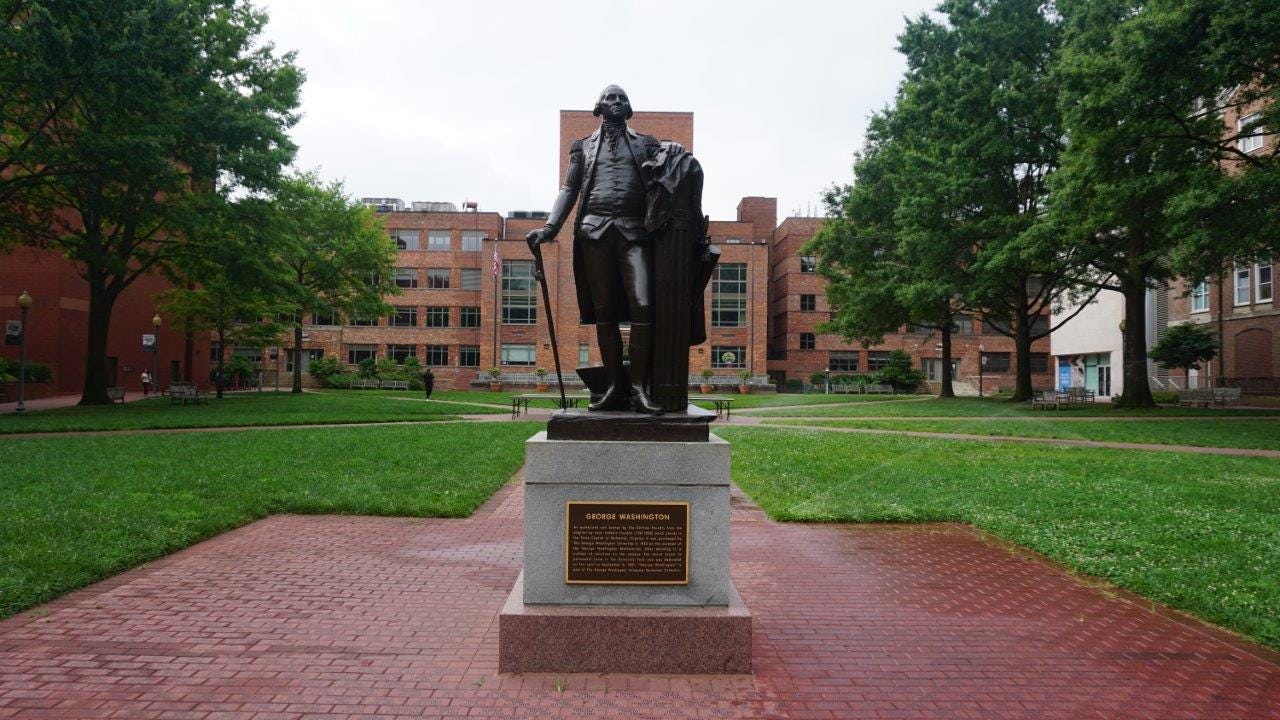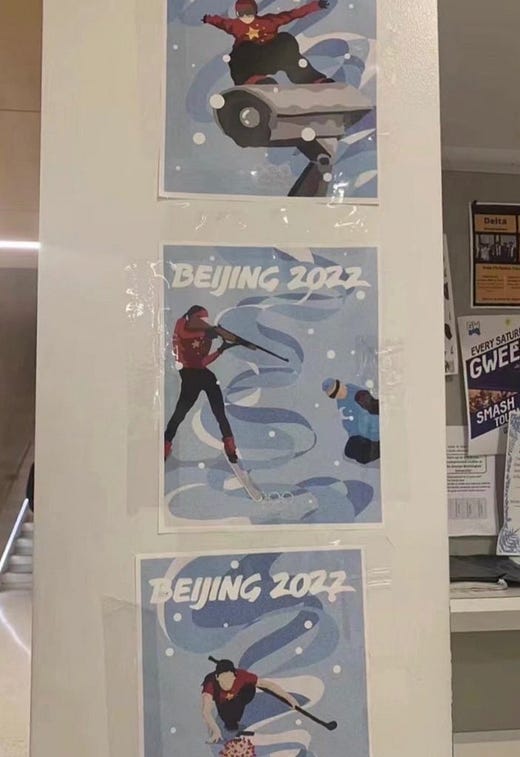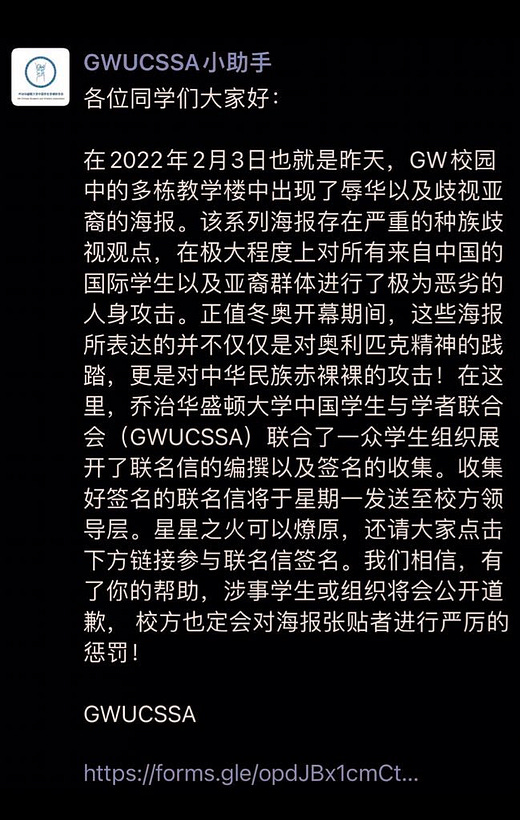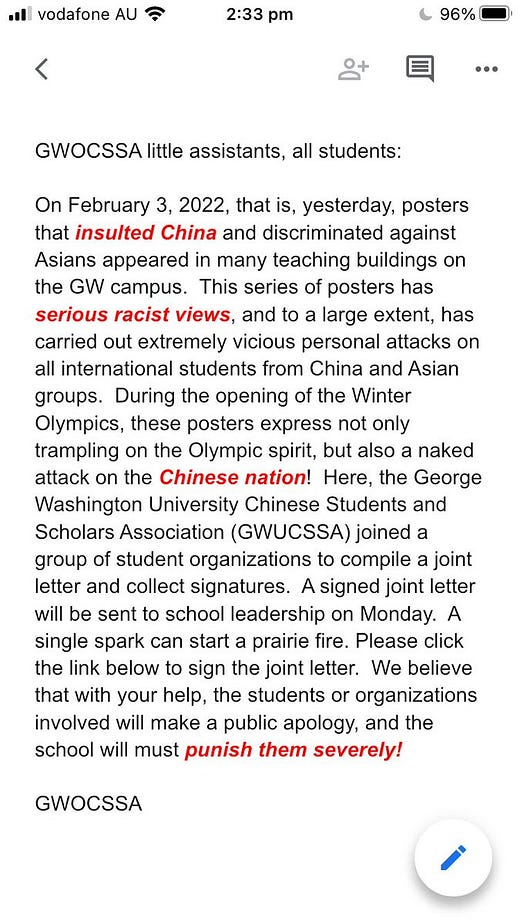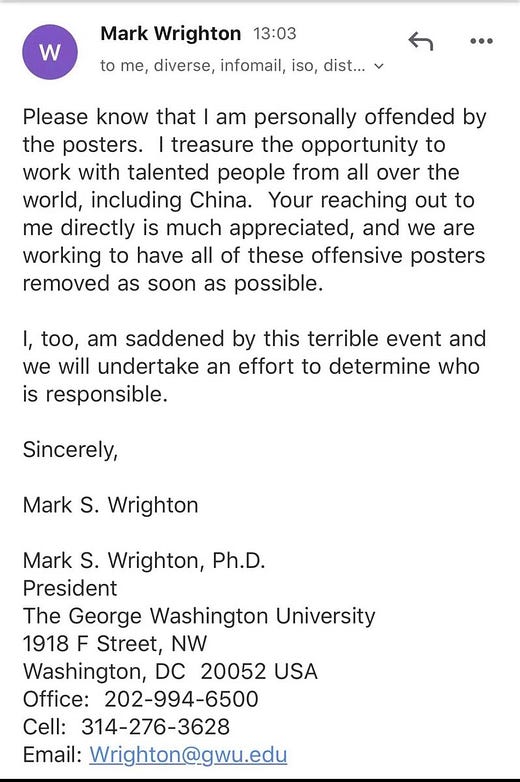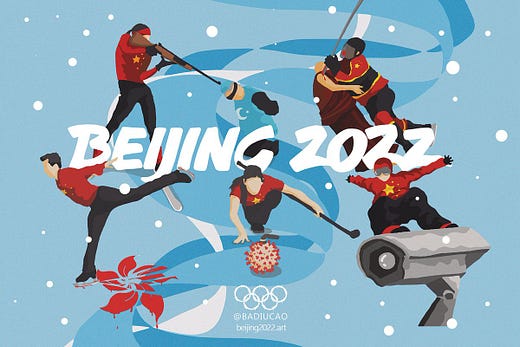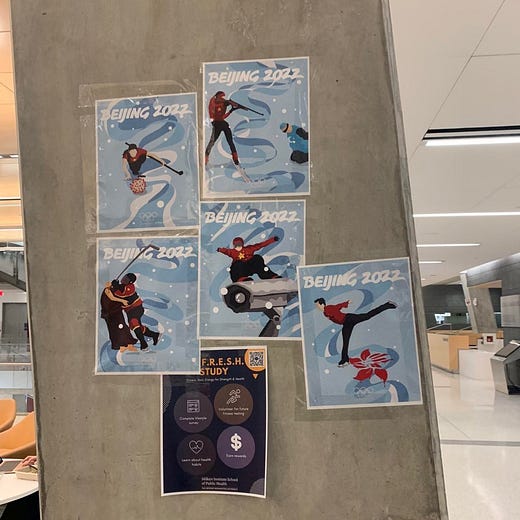George Washington University President Condemns Anti-China Artwork, Then Reverses Course
A troubling episode of hypersensitivity and illiberal impulses at a university in the nation's capital over critiques of China.
Last week, a controversy started brewing at George Washington University in Washington, D.C. after posters appeared on campus depicting the Chinese Communist Party’s (CCP) human rights abuses in light of the Winter Olympic Games in Beijing:
These posters generated outrage from the GWU Chinese Students and Scholars Association (GWUCSSA), calling the artwork “anti-China” and “racist” even though the artist, Badiucao, is Chinese-Australian.
Then, on Sunday, GWU’s president issued a statement saying that he was “personally offended by the posters” and that the school was “working to have all these offensive posters removed as soon as possible.”
Here’s one aspect about such maneuvers that multiple commentators are beginning to notice: the way CCP-sympathizers use the racial hypersensitivity of elite U.S. institutions against them. These posters, of course, were created by a person of Chinese descent and are targeted at a brutal regime, not a race or ethnicity. But all it took to get the president of an American university to consider censoring expression insulting to the CCP was to frame that expression as an act of racism.
As Badiucao himself put it:
Fortunately, the Foundation for Individual Rights in Education (FIRE) swiftly responded to GWU’s illiberal instincts:
The next day, GWU’s president backed down, saying he “responded hastily,” adding “[u]pon full understanding, I do not view these posters as racist; they are political statements.”
While it’s good to see GWU’s president admit his error and suspend the investigation, it’s troubling that his initial instinct was to censor artwork that was clearly making constitutionally protected political statements about widely known CCP human rights abuses. What’s worse is the implication that if the artwork wasn’t critiquing the Olympics or expressing some other approved viewpoint, the president would be okay with censorship and punishment. As FIRE put it, the president’s “belated positive opinion of the posters’ content should not determine whether students can see it.”
We’ll leave you with this:



